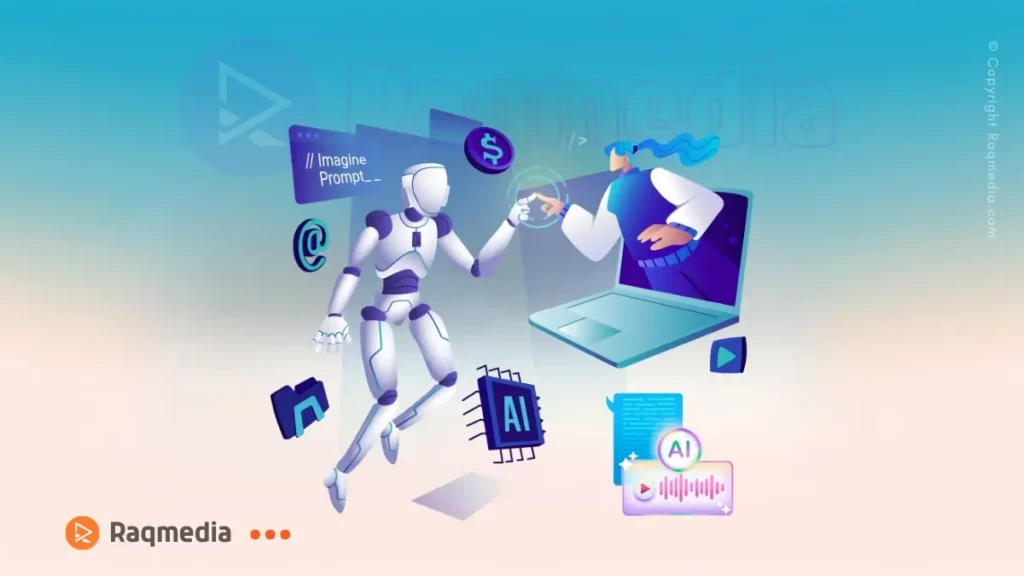In today's rapidly evolving digital landscape, the integration of Artificial Intelligence (AI) tools has become more than just a trend; it is a transformative force reshaping industries and revolutionizing how businesses operate. Elevate your AI game with our ultimate guide on how to master AI tools. Dominate the tech scene and stay ahead in this fast-evolving field.
From enhancing marketing strategies to streamlining daily operations, AI tools have proven themselves indispensable for tech enthusiasts, digital marketers, small business owners, and AI practitioners alike. The power that lies within these intelligent technologies presents an unparalleled opportunity for those willing to embrace the future of innovation.
How to Master AI Tools: A Comprehensive Guide
As we unlock the potential of AI tools through this comprehensive guide, we invite you to embark on a journey of discovery and mastery unlike any other. Imagine the impact of seamlessly integrating AI technologies into your workflows, uncovering hidden insights from data with precision, or tapping into predictive analytics to propel your decision-making abilities to new heights.

This guide isn't just about learning how to use AI tools – it's about harnessing their power to shape a future where efficiency, agility, and intelligence converge in remarkable ways. Join us as we delve deep into the realm of artificial intelligence and empower you with the knowledge and skills needed to navigate this exciting domain with confidence and clarity.
Understanding AI Tools
In the realm of technology, Artificial Intelligence (AI) tools serve as powerful assets that revolutionize operations across industries. These sophisticated tools encompass a wide range of applications designed to harness machine learning and data processing capabilities to automate tasks, analyze patterns, and generate valuable insights. Whether it's automating repetitive processes, enhancing customer experiences, or optimizing digital marketing campaigns, AI tools are reshaping how businesses operate in the digital age. From predictive analytics to chatbots and recommendation engines, AI tools have become integral components for efficiency and innovation.
The benefits of integrating AI tools into business strategies are abundant. Companies can streamline workflows, improve operational efficiencies, and drive competitive advantages by leveraging AI technologies. In marketing, AI-powered tools offer advanced capabilities for personalizing customer interactions, analyzing market trends, and optimizing advertising campaigns with precision. For instance, companies like Netflix utilize AI algorithms to recommend personalized content based on users' viewing histories, significantly enhancing user engagement and satisfaction. Moreover, in healthcare, AI tools assist medical professionals in diagnosing diseases faster through image recognition technologies.
Real-world applications of AI tools showcase their transformative impact across diverse sectors. Take the example of Tesla's autonomous driving features powered by AI algorithms that enable self-driving cars to navigate complex environments safely. Additionally, e-commerce platforms like Amazon leverage AI-driven product recommendations to enhance cross-selling opportunities and customer retention rates. The adoption of chatbots in customer service operations has also become a common practice among businesses seeking efficient ways to address inquiries promptly and provide real-time assistance round the clock using natural language processing capabilities.
By understanding the multifaceted nature of AI tools and their widespread applications, businesses can tap into a world of opportunities to innovate processes, enhance decision-making capabilities, and unlock new revenue streams through intelligent automation solutions tailored to their specific needs.
Choosing the Right AI Tools for Your Needs
When delving into the world of AI tools, it's crucial to assess various factors before selecting the most suitable tools for your specific requirements. Firstly, consider the scalability and customization options that AI tools offer. Tailoring these tools to fit within the framework of your industry or business model can significantly impact their effectiveness. For instance, a small e-commerce business might benefit more from an AI tool focused on personalized product recommendations to enhance customer experience, while a manufacturing company may prioritize predictive maintenance algorithms to optimize machinery operations.
Next, conducting a thorough comparison of different types of popular AI tools available in the market is essential. By evaluating features, performance metrics, user reviews, and integration capabilities, you can make an informed decision that aligns with your organizational goals. For example, comparing natural language processing (NLP) tools from different vendors can help identify which one provides better accuracy in sentiment analysis for social media monitoring purposes.
Furthermore, ensuring the efficiency and reliability of AI tools before integration is vital for seamless implementation. Look for indicators such as uptime statistics, data security measures, and technical support options provided by the AI tool providers. Conducting pilot tests or requesting demos can also help validate the functionality and performance of the tools in real-world scenarios. For instance, testing a chatbot's response time and conversational abilities can reveal its readiness to handle customer inquiries effectively when deployed on an e-commerce website. By carefully considering these factors and comparisons when choosing AI tools tailored to your needs, you pave the way for successful integration and utilization of advanced technologies in your operations.
Implementing AI Tools Effectively
When it comes to implementing AI tools effectively, it is crucial to follow best practices that facilitate seamless integration and maximize the benefits these technologies offer. One key aspect is to thoroughly assess your existing systems or processes to identify areas where AI tools can enhance efficiency and productivity. By conducting a detailed evaluation, businesses can pinpoint specific tasks or operations that could benefit from automation or data-driven insights provided by AI solutions.
Embrace a growth mindset and stay updated on the latest developments in AI tools. Join online communities, attend webinars, and participate in workshops to expand your knowledge continuously. For instance, subscribing to newsletters from leading AI companies like Google's TensorFlow or OpenAI can provide valuable insights into cutting-edge AI advancements.
Training strategies play a vital role in ensuring successful adoption of AI technologies within an organization. Providing employees with the necessary training and resources to adapt to new AI tools is essential for driving acceptance and proficiency. Training programs should be tailored to the specific functionalities of the AI tools being implemented, offering hands-on experience and real-life examples to demonstrate their practical applications. By fostering a culture of continuous learning and skill development, companies can empower their workforce to leverage AI tools effectively in their day-to-day activities.
Case studies showcasing successful deployment of AI tools serve as powerful testimonials to the transformative impact these technologies can have on businesses. For instance, a marketing agency that integrated a predictive analytics tool saw a significant improvement in campaign performance and customer targeting accuracy.

By leveraging machine learning algorithms, the agency was able to optimize ad spend allocation based on data-driven insights, resulting in higher ROI for clients. These success stories not only inspire confidence in adopting AI tools but also provide valuable lessons on effective implementation strategies that yield tangible results.
Maximizing the Potential of AI Tools
To truly maximize the potential of AI tools, it's essential to harness advanced features that drive productivity and efficiency. For instance, in the realm of digital marketing, AI-powered chatbots can enhance customer service by providing instant responses to queries, thereby reducing response times and improving customer satisfaction levels. These chatbots can analyze vast amounts of customer data to offer personalized recommendations, transforming user experiences and boosting conversion rates.
Moreover, leveraging data insights generated by AI tools is paramount in shaping strategic decision-making processes. By utilizing predictive analytics algorithms, businesses can forecast trends, identify patterns, and anticipate market shifts with remarkable accuracy. For example, e-commerce platforms can optimize inventory management by analyzing consumer behavior through AI-driven algorithms to predict demand fluctuations. This proactive approach not only streamlines operations but also minimizes inventory costs while meeting customer demands effectively.
In today's dynamic business landscape, collaborative approaches that integrate human intelligence with automated processes using AI tools are a game-changer. Take the healthcare sector, where diagnostic imaging powered by AI algorithms assists radiologists in interpreting medical scans swiftly and accurately. By combining human expertise with AI capabilities, healthcare professionals can expedite diagnoses, reduce errors, and improve patient outcomes significantly. This synergy between human intuition and machine precision showcases the transformative power of AI tools when seamlessly integrated into existing workflows.
Ensuring Security and Ethical Use of AI Tools
In the realm of AI tools, ensuring security and ethical considerations are paramount to maintaining trust and reliability in digital operations. The importance of data security cannot be overstated, especially when sensitive information is involved. By implementing robust encryption protocols, access controls, and regular security audits, businesses can safeguard their data from external threats and breaches. For instance, financial institutions leverage AI-powered fraud detection systems that not only enhance security measures but also protect customer data from malicious activities.
Don't be afraid to experiment with different AI tools and algorithms to find what works best for your specific needs. Utilize A/B testing methodologies when implementing new AI solutions to gather data-driven feedback and refine your strategies over time. A practical example would be testing various chatbot platforms to see which one yields the highest customer engagement metrics for your business.
Compliance regulations play a crucial role in dictating the ethical use of artificial intelligence within various industries. Adhering to regulatory frameworks such as GDPR or HIPAA is essential for businesses leveraging AI tools to handle personal or sensitive data. These regulations ensure that data privacy rights are respected, promoting transparency and accountability in data processing practices. For example, healthcare providers utilizing AI algorithms for patient diagnosis must comply with strict guidelines to maintain patient confidentiality and uphold medical ethics.
Maintaining transparency and accountability while harnessing cutting-edge AI technology involves clear communication channels with stakeholders regarding the use of AI tools. Companies should openly disclose how AI is utilized in decision-making processes and provide avenues for feedback or redressal in case of algorithmic bias or errors.
Transparency fosters trust among consumers and demonstrates a commitment to responsible innovation. An illustration could be an e-commerce platform using AI recommendations but clearly informing users about data collection practices and allowing them to modify preferences for enhanced personalization while respecting privacy boundaries.
Future Trends in AI Tool Development
As we venture into the future of artificial intelligence tools, a landscape rich with emerging trends and innovations awaits. One of the key areas poised for transformation is natural language processing (NLP). The ability of AI tools to comprehend, interpret, and generate human language is becoming increasingly sophisticated. For example, advanced NLP models such as OpenAI's GPT-3 are paving the way for more nuanced interactions between humans and machines, opening up new possibilities in customer service automation, content generation, and even creative writing.
Furthermore, the integration of AI with Internet of Things (IoT) devices is expected to revolutionize how we interact with our connected environments. Imagine smart homes that can adapt to residents' preferences autonomously or industrial machinery that anticipates maintenance needs before breakdowns occur. This fusion of AI tools with IoT ecosystems promises to streamline operations, enhance efficiency, and create personalized user experiences across various sectors.

Looking ahead, advancements in reinforcement learning algorithms are set to push the boundaries of what AI tools can achieve. By enabling systems to learn through trial and error rather than explicit programming, reinforcement learning holds immense potential in optimizing complex decision-making processes. Industries such as finance are already leveraging this technology for trading strategies and risk management, demonstrating the transformative power of adaptive AI tools in dynamic environments.
The Future of AI Tool Development
The future of AI tool development not only fosters innovation but also presents unprecedented opportunities for growth and collaboration. With deep learning networks evolving rapidly and quantum computing on the horizon, organizations can harness next-generation AI tools to unlock new frontiers in healthcare diagnostics, climate modeling, personalized education platforms, and much more. Embracing these forthcoming trends will empower businesses and individuals alike to leverage cutting-edge technologies that redefine possibilities in an ever-evolving digital landscape.
Empowering Your Journey with Innovative Solutions
In the fast-evolving realm of artificial intelligence, mastering AI tools is not just about staying ahead but also about transforming how we work, interact, and make decisions. As we look towards the future of AI tool development, it becomes evident that embracing innovation is key to unlocking unprecedented potential. By understanding the emerging trends and envisioning the capabilities of next-generation AI tools, individuals and businesses can empower themselves with cutting-edge solutions that redefine efficiency and productivity.
As we navigate through this comprehensive guide on mastering AI tools, it is essential to remember that successful integration of these technologies requires a holistic approach. From selecting the right AI tools tailored to specific needs to implementing them effectively within existing systems, each step paves the way for a transformative journey towards enhanced performance and outcomes. Leveraging data insights generated by AI tools not only drives informed decision-making but also opens doors to new opportunities for growth and innovation across various sectors.
Foster relationships with other professionals in the AI space by attending industry events, connecting with experts on platforms like LinkedIn, or participating in collaborative projects. Building a strong network can open doors to new opportunities for learning, mentorship, and potential partnerships that can propel your AI tool mastery forward. Consider joining specialized groups like Women in Machine Learning & Data Science (WiMLDS) or local AI meetups to expand your professional circle.
To truly harness the power of AI tools, a collaborative approach that combines human intelligence with automated processes is vital. This synergy between advanced technology and human expertise ensures that organizations can optimize their operations while delivering exceptional products or services to their customers. By prioritizing data security, compliance regulations, and ethical considerations in tandem with leveraging advanced functionalities of AI tools, individuals and businesses can navigate the complex landscape of artificial intelligence with confidence and integrity.
Empowering your journey with innovative solutions entails embracing change, exploring possibilities, and seizing opportunities that propel you towards success in today's digital age fueled by artificial intelligence.
Wrapping Up on How to Master AI Tools
As we delve deep into the realm of AI tools, we uncover a world brimming with possibilities and potential. Through this comprehensive guide, we have explored the transformative impact of AI in various industries and business operations. By understanding the significance of choosing the right AI tools, implementing them effectively, and maximizing their potential, individuals from tech enthusiasts to small business owners can unlock a new era of efficiency and productivity.
Embracing AI technologies is not just about adopting innovation; it's about reshaping the way we work, strategize, and make decisions. By infusing human intelligence with machine learning capabilities, we pave the way for unprecedented growth and success. As we navigate through the ever-evolving landscape of artificial intelligence, remember that the journey to mastery is a continuous process of learning, adapting, and utilizing cutting-edge solutions to propel your endeavors forward.
Frequently Asked Questions About The Topic with answers: Q & A
1. What are AI tools?
AI tools are software applications that leverage artificial intelligence algorithms to perform tasks that typically require human intelligence. These tools analyze data patterns, make predictions, automate processes, and improve decision-making.
2. How can businesses benefit from using AI tools?
Businesses can benefit from AI tools by enhancing operational efficiency, personalizing customer experiences, optimizing marketing strategies, gaining valuable insights from data analysis, reducing manual errors, and staying competitive in today's digital landscape.
3. How do I choose the right AI tool for my needs?
When selecting an AI tool, consider factors such as your specific goals or objectives, compatibility with existing systems, ease of integration and use, reliability of the tool provider, scalability options for future growth, and available customer support.
4. What are some best practices for implementing AI tools effectively?
Best practices include conducting thorough research before implementation, providing adequate training for employees to understand and adapt to the new technology seamlessly,
5. How can I ensure ethical use of AI tools in my business?
To ensure ethical use of AI tools within your business operations, it is essential to prioritize data privacy compliance regulations adhere to transparency principles communicate clearly about how AI is being used protect sensitive information securely.
By equipping yourself with knowledge on leveraging AI ethically, you'll uphold trustworthiness while embracing technological advancements responsibly. Through dedication to mastering these innovative solutions and an unwavering commitment to harnessing technology ethically, you are poised to embark on a transformative journey towards success with unparalleled support from cutting-edge AI tools.
By incorporating these final tips into your journey of mastering AI tools, you can optimize your approach, drive innovation within your organization, and unlock the full potential of artificial intelligence in a rapidly evolving digital landscape.









